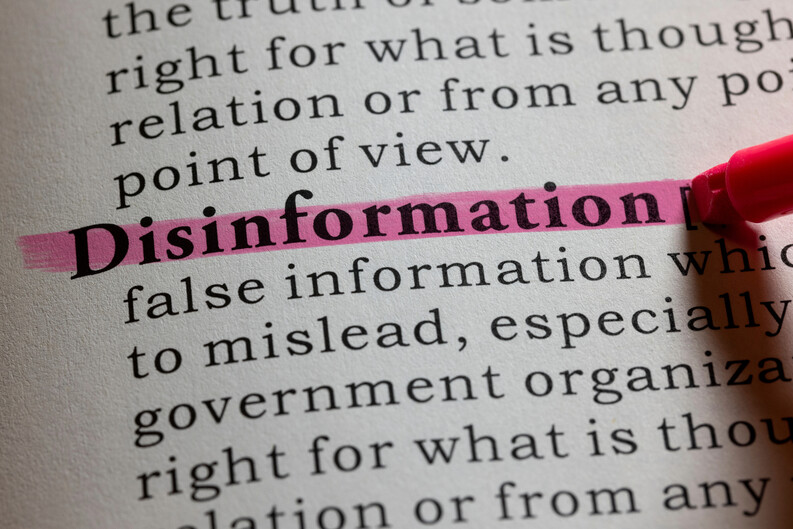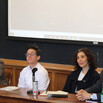MFIA Clinic Files Brief on How To Fight Lies about Voting, Protect Freedom of Expression

The Media Freedom and Information Access Clinic (MFIA) at Yale Law School and co-counsel have filed an amicus brief on behalf of an election law expert showing how a Reconstruction-era civil rights law can be used to prosecute intentionally false statements about the mechanics of voting, a use that is consistent with the First Amendment.
The brief, filed with Protect Democracy on behalf of UCLA School of Law Professor Richard Hasen, is in an appeal for a case in which an influential social media user attempted to trick voters into believing they could vote by text message.
United States v. Mackey concerns Douglas Mackey, who had some 58,000 followers on Twitter (now known as X) in the months before the 2016 presidential election. In the runup to Election Day, Mackey repeatedly tweeted to voters of a particular party, falsely claiming that it was possible to vote via text message. Mackey was arrested for violating Section 241, which prohibits conspiring to “injure” anyone in the exercise of any right or privilege they have under federal law, including the right to vote. In March 2023, a jury in New York found Mackey guilty of violating Section 241. He was sentenced to seven months in prison. Mackey then appealed his conviction to the United States Court of Appeals for the Second Circuit.
The primary question now before the Second Circuit in Mackey’s appeal is whether Section 241 prohibits conspiracies to circulate false information about voting mechanisms and procedures, and whether such a prohibition would be valid under the First Amendment.
The brief submitted on behalf of Hasen draws on centuries of case law to show that Section 241’s prohibition on conspiracies to “injure” is properly understood to include injuries that are cognizable under the common law of torts, including interference with an individual’s right to vote.
Section 241 originated as a response to resistance to Reconstruction in former Confederate states. The brief argues that the statute’s application to knowingly false speech intended to disenfranchise voters is particularly important today, “given the ease with which false information can be spread today by bad actors, and the growing loss of confidence in the integrity of our elections.”
The brief also explains that punishing knowingly false information about voting mechanisms and procedures is not unconstitutionally overbroad and does not violate the First Amendment.
“There is no First Amendment right to lie about when, where, or how people vote,” said Tobin Raju, Craig Newmark Clinical Fellow at the Media Freedom and Information Access Clinic. “Using Section 241 to prosecute conspiracies to spread such verifiably false information does not endanger protected expression.”
Yale Law School students Victoria Maras ’25, Ben Menke ’25, and Elliot Ping ’25 worked on the brief.
The Media Freedom and Information Access Clinic at Yale Law School is a law student clinic dedicated to increasing government transparency, defending the essential work of news gatherers, and protecting freedom of expression by providing pro bono legal services, pursuing impact litigation and developing policy initiatives.


